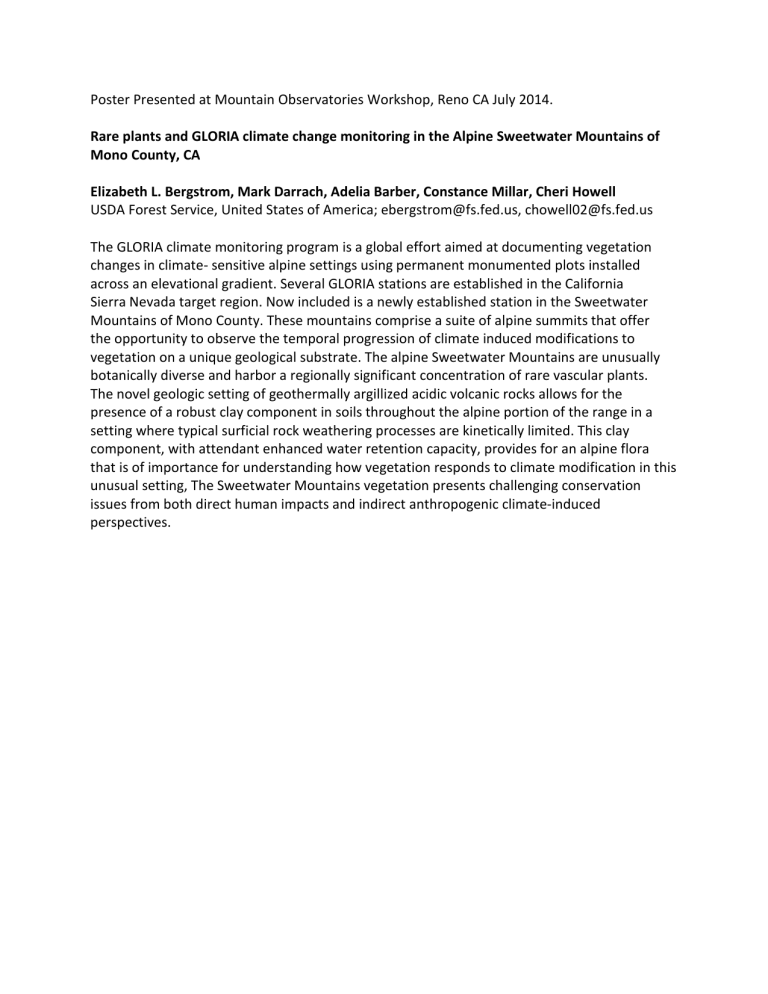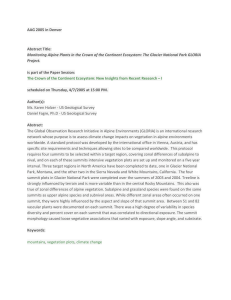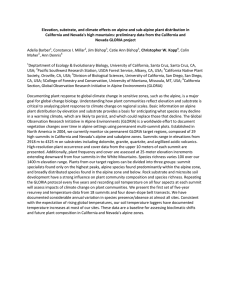Poster Presented at Mountain Observatories Workshop, Reno CA July 2014.

Poster Presented at Mountain Observatories Workshop, Reno CA July 2014.
Rare plants and GLORIA climate change monitoring in the Alpine Sweetwater Mountains of
Mono County, CA
Elizabeth L. Bergstrom, Mark Darrach, Adelia Barber, Constance Millar, Cheri Howell
USDA Forest Service, United States of America; ebergstrom@fs.fed.us, chowell02@fs.fed.us
The GLORIA climate monitoring program is a global effort aimed at documenting vegetation changes in climate- sensitive alpine settings using permanent monumented plots installed across an elevational gradient. Several GLORIA stations are established in the California
Sierra Nevada target region. Now included is a newly established station in the Sweetwater
Mountains of Mono County. These mountains comprise a suite of alpine summits that offer the opportunity to observe the temporal progression of climate induced modifications to vegetation on a unique geological substrate. The alpine Sweetwater Mountains are unusually botanically diverse and harbor a regionally significant concentration of rare vascular plants.
The novel geologic setting of geothermally argillized acidic volcanic rocks allows for the presence of a robust clay component in soils throughout the alpine portion of the range in a setting where typical surficial rock weathering processes are kinetically limited. This clay component, with attendant enhanced water retention capacity, provides for an alpine flora that is of importance for understanding how vegetation responds to climate modification in this unusual setting, The Sweetwater Mountains vegetation presents challenging conservation issues from both direct human impacts and indirect anthropogenic climate-induced perspectives.










![Real-Life Climate Change Stories [WORD 512KB]](http://s3.studylib.net/store/data/006775264_1-25b312f26ec237da66580d55aa639ecf-300x300.png)
